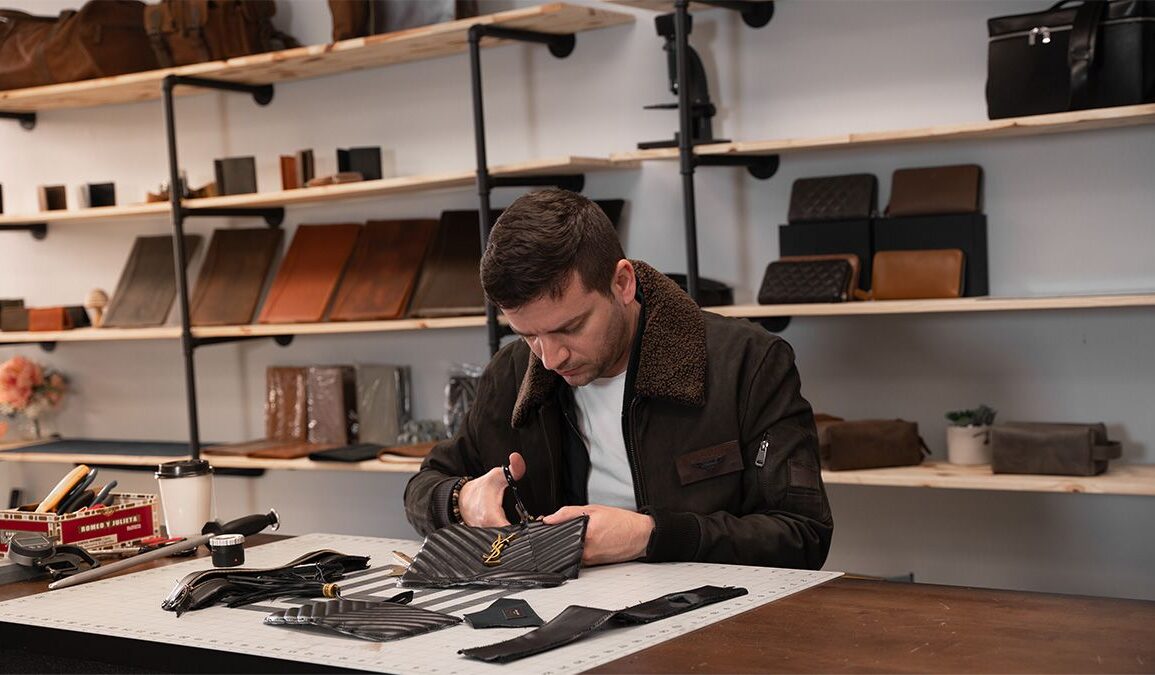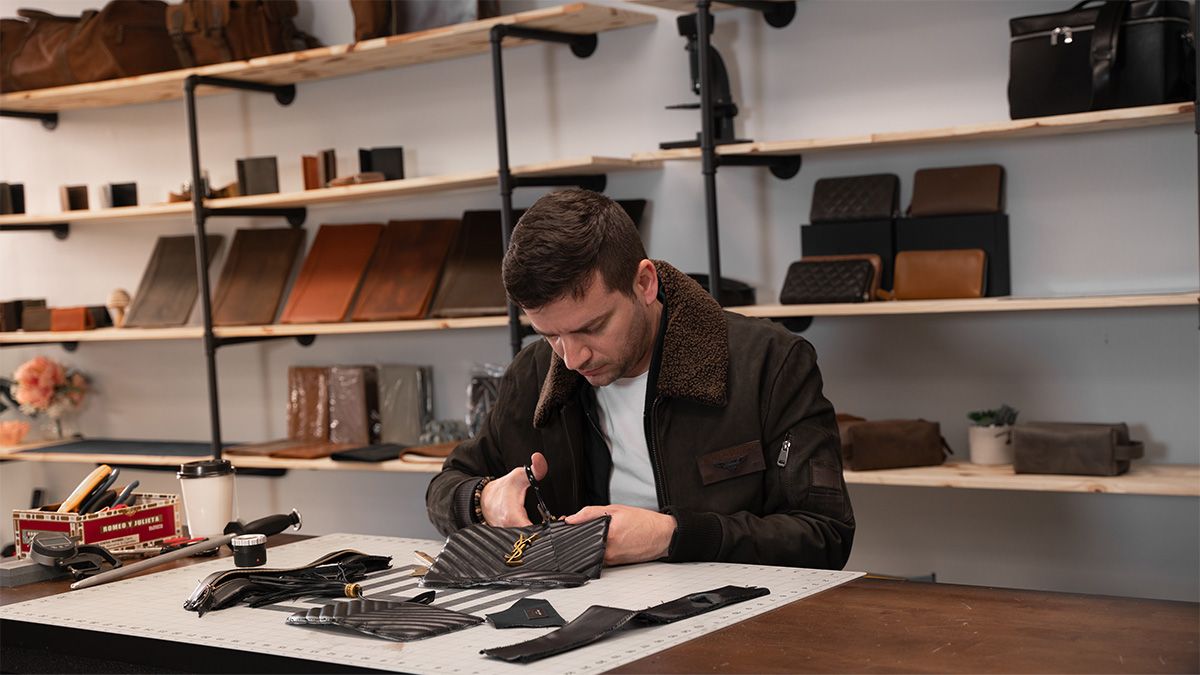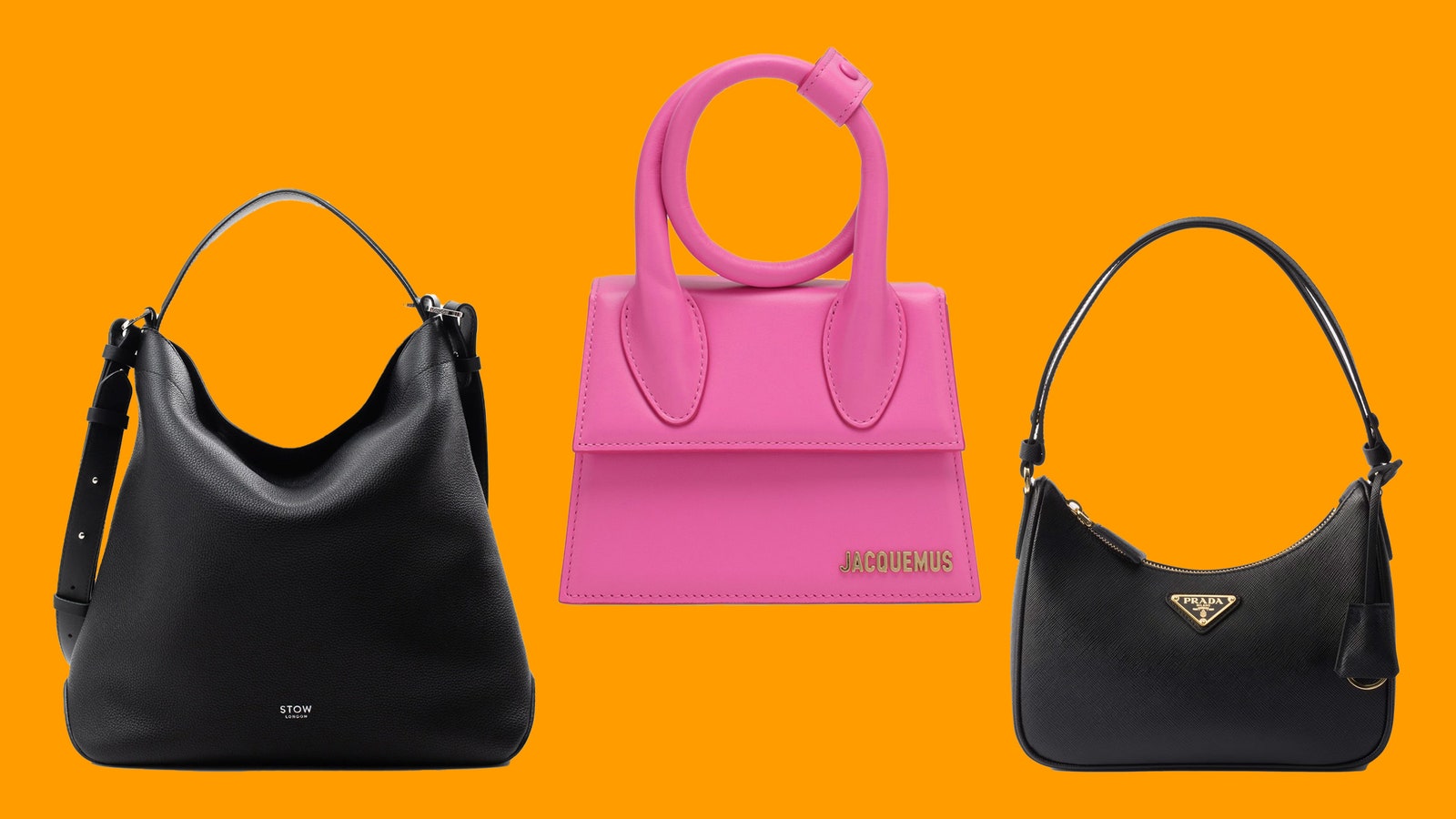Three years ago, while strolling through an American mall with his wife, Volkan Yilmaz once again found himself mulling a question that had been on his mind for years. They’d just passed a Louis Vuitton store, its signature monogrammed bags visible through the window. “I’d always wondered why these bags cost thousands of dollars, especially since I know a bit about leather bags and the actual costs involved,” he tells me. Although Yilmaz had never set foot inside one of these iconic luxury stores, curiosity finally pulled him in.
While chatting with a sales associate, Yilmaz was taken aback to learn that the famous brown LV material isn’t leather, but rather canvas with only leather accents. Puzzled by the disconnect between price and material, Yilmaz purchased a bag to dig deeper—literally. He wanted to see if there was some hidden craftsmanship or detail he’d missed that would explain the premium. To uncover this, he planned to take the bag apart, both in a critical and literal sense: sever stitching, snick sections, harvest hardware, liberate lining. “That led to an idea: Why not make a video about it?” Yilmaz says.
His first attempt, a 30-minute YouTube video, didn’t immediately go viral. But Yilmaz kept experimenting, trying shorter, punchier formats on TikTok, where he asked, “Is it worth it?” as he disassembled high-end handbags. This approach struck a nerve, attracting viewers intrigued by the true cost of luxury goods. “People started asking mea to do the same with brands like Chanel and Hermès. That’s when I realized, maybe this could be something, especially as my follower count began to grow fast.”
Today, Yilmaz—widely known online as “Tanner Leatherstein”—has amassed a significant following, with more than 400,000 subscribers on YouTube, 700,000 on Instagram, and 1.1 million on TikTok. His videos have garnered tens of millions of views combined across his various platforms. A 2023 teardown of some Christian Loutboutin shoes has garnered 7.4 million views. His dismissal of the YSL Loulou bag has nearly 4 million.
To fuel his channel, he has spent over $41,000 of his own money on designer bags, meticulously disassembling them on camera to reveal their construction and quality, making him an unexpected authority on the real value of designer goods.
Here he dissects each item’s materials, from leather quality and type to hardware choices, and assesses the craftsmanship, examining stitching and finishing to see if a brand delivers what it promises. Using his insider knowledge, he estimates the raw costs of leather, hardware, and labor, then compares it to the retail price, often revealing profit multipliers of five to 10 times for luxury brands. From there he gives it one of three ratings: nothing special (i.e., not worth it), good but overpriced (i.e., worth it but only if you care about the logo), and exquisite items (i.e., worth it for the price).
In a world where appearances often trump authenticity, Yilmaz’s work encourages a different perspective, reminding people that true value lies in what is built to last, not just what’s built to be seen. It’s a bold vision, but one that’s gaining traction.
His original question—“Why do these bags cost thousands?”—has found increasing resonance as of late, sparked by a series of high-profile scandals that have rocked the industry. From Dior’s factories coming under investigation for alleged unethical practices to Loro Piana’s $9,000 vicuña sweater controversy, where some Peruvian workers reportedly went unpaid, these stories underscore what Yilmaz has observed firsthand: a troubling gap between brand image and reality.
TikTok content
This content can also be viewed on the site it originates from.
“It’s all part of a corporate culture that prioritizes profit margins above everything else,” he says. “Companies are under constant pressure to deliver higher profits and beat the previous quarter’s earnings. When you’re pushing that hard for better margins, executives start making decisions that are far removed from the people who actually make these products.”
He pauses, choosing his words carefully. “When suppliers are forced to cut costs to meet these demands, they sometimes resort to unethical practices. Unfortunately, that’s the outcome of corporate greed, and it’s not just a few brands—it’s widespread.”
In Yilmaz’s view, the high-profile cases that do make it to the public eye are “only the tip of the iceberg.” He hopes that as awareness builds, more people will be motivated to ask tough questions and demand transparency. “Consumers have more power than they think,” he says. “If people are more aware of what they’re buying, the brands will be forced to change.”
In the meantime, he’s often asked by followers what they should buy if they want quality, ethically-produced leather goods that warrant the price. “I tell them to look for brands that prioritize craftsmanship over marketing. They’re out there—often small brands that truly understand and value leatherwork. Those are the ones making products that last,” he says, naming Strathberry from Scotland, Polène from Paris, and Stow London as excellent quality for the price.
As for the ones to avoid? “Prada is very overpriced for the quality, so is Jacquemus,” he says, referencing the two viral videos where he debunked the quality of both brands’ popular bags.
Despite his critiques, Yilmaz clarifies that he’s not anti-luxury. “I’m not trying to tear them down. I just want to help people understand whether a luxury item is truly worth the high price tag—if it’s genuinely artisanal or just an ordinary product with a big markup,” he says. Yilmaz even adds that he’d be open to consulting with luxury brands on how to improve transparency and quality (if they ask, that is).
So far, he hasn’t heard directly from any major brands, positively or negatively. “Early on, 11 of my videos were flagged by the LVMH Group for allegedly promoting counterfeit products, which wasn’t the case,” he says. His account was briefly suspended, but after posting a video explaining the misunderstanding, Instagram reinstated it. He does, however, receive plenty of positive feedback from smaller brands, who thank him for recognizing their craftsmanship and for challenging the luxury sector’s influence over consumers.
Beyond just recommendations, Yilmaz has also become an educator, teaching his followers how to recognize quality leather goods. “Look for natural, unaltered leather,” he says, advising buyers to watch for unique grain patterns, solid stitching, and durable hardware. He also warns against vague labels: “If it just says ‘genuine leather,’ that’s usually a sign the brand has little to boast about in terms of material quality.”
Given his background, it’s not surprising that Yilmaz is passionate about the subject. Raised in a family of leather workers in Turkey, he learned the trade from a young age, even crafting his first leather jacket at age 11. His brand, Pegai, which began on Etsy eight years ago, reflects his commitment to quality, featuring high-end leather and hardware sourced from Spanish artisans—what he calls “accessible luxury.”
While Yilmaz’s rise to fame might appear advantageous for Pegai, he rarely uses his channel to promote his own brand. “I seldom mention my brand in reviews, so some viewers don’t realize I have one,” he says. “Occasionally, if I’m sharing an update or related story, I’ll mention Pegai, which boosts direct sales. But otherwise, trust builds over time as viewers appreciate my content and eventually seek out my brand.”
He has poured countless hours and resources into building his reputation, even once hiring an investigator in Singapore to verify a brand’s claim that its bags were locally produced. “That’s how far I’m willing to go to get to the truth,” he says.
His passion for leather extends beyond end products to the ethics and sustainability of the industry itself. While leather has come under scrutiny for its environmental impact, Yilmaz sees it as a valuable byproduct of the meat industry, preventing hides from becoming waste. He argues that genuine leather’s durability makes it a better choice than plastics, which are often marketed as “vegan leather.”
“There’s nothing vegan or leather about that plastic labeling,” he says, criticizing the trend as misleading. Still, he acknowledges the efforts of some brands to create true vegan alternatives from natural fibers such as mushroom or cactus, though he believes they have yet to meet the durability and quality of real leather.
Through his content, Yilmaz is helping shape a new wave of informed consumers who are less interested in status symbols and more focused on the values behind their purchases. With his genuine curiosity and willingness to spend his own money on the research, Yilmaz has managed to disrupt an industry that once felt untouchable.
And though he may have started by simply asking why a Louis Vuitton bag costs so much, his journey has led him to question the entire luxury ecosystem. In a world obsessed with brand names, his message, preaching to millions of Gen Zers via vertical video, is refreshingly clear and (whisper it) decidedly old-school: True luxury isn’t about the logo—it’s about the artistry, materials, and values behind the brand.
This post was originally published on this site be sure to check out more of their content.











